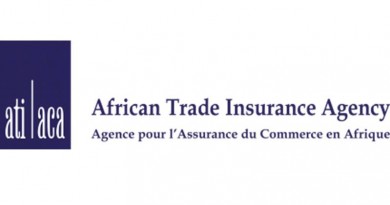We will prioritize Digital Technology and Clean Energy – VP Kashim Shettima
Nigeria’s enormous potential in digital technology, the outsourcing sector, and the clean energy sector, according to Vice President Kashim Shettima, will continue to encourage investments in the country’s energy transition strategy and goal to diversify the economy.
He made this statement on Monday during a courtesy call at the presidential residence with Mr. Dan Jorgensen, the Danish Minister for Development Cooperation and Global Climate Policy.
In shedding insight on Nigeria’s climate goals under President Bola Ahmed Tinubu’s government, the Vice President said that the declining fortunes of the oil industry had made investments in renewable energy, digital technology, and other sectors essential.
“We are facing challenges, but where there is a will, there is a way,” stated Senator Shettima. The President is a man endowed with intelligence, enthusiasm, and the ability to guide the country toward wealth and advancement. He sincerely hopes to revitalize Nigeria as if Nigeria prospers, then Africa prospers as well.
“Oil’s significance as the main engine of the economy will wane in the upcoming years, but it will still be vital for the next few decades due to its other derivatives. We must therefore make it a top priority to think creatively and discover alternatives.
For this reason, among other industries, we are searching for investments in digital technology. There are several chances for cooperation and partnerships.
VP Shettima noted that green and sustainable energy might expedite Africa’s development and that the strength of Nigeria’s population is a significant resource for that effort.
The vice president argued that “once there is sustainable energy, the people of the continent will key into Africa’s development aspirations,” enlisting the backing of the Danish government, the Global Centre on Adaptation for Africa, and Nigeria’s Climate Action.
He said, “So, I will seek your understanding and support to save Africa,” adding that the Center’s backing is required to quicken the pace of climate action and expedite adaptation to solutions, with a particular focus on the continent’s most vulnerable citizens.
The Vice President asked Denmark’s government for cooperation, praising the nation for taking the lead in combating climate change.
We face serious existential challenges to our shared humanity, but we are really proud of Denmark for its climate consciousness. You’re doing quite good. There’s potential for us to work together in a way that benefits both of us,” he said.
Speaking further about the political unrest in some parts of West Africa, Vice President Shettima stated that Nigeria has adopted a strong stance against military takeovers and in support of democracy and human rights, adding that “Nigeria is actually the beacon of hope and stability in a turbulent region.”
Nigeria’s leadership and dedication to climate sustainability have been praised by Jorgensen, the Danish Minister for Development Cooperation and Global Climate Policy, who made this statement earlier.
He stated that there are a lot of chances for Denmark and Nigeria to work together more in the future because of Nigeria’s leadership in addressing regional stability and its dedication to a just energy transition. “We hold the Danish-Nigerian partnership in the highest regard. The new administration’s plan has greatly impressed us.
The way you are handling the difficulties affecting your nation is undoubtedly a sign of leadership,” Jorgensen remarked. “We also share a common understanding that common understanding and climate sustainability is a political question that is not only noble but also working,” he said, highlighting the mutual understanding between Denmark and Nigeria on the significance of climate action.
Nigeria’s stability and constructive influence in a region that frequently faces challenges were praised by the Danish Minister. “I also want to commend Nigeria for being a stable country doing a lot of positive difference in a region that is sometimes challenging,” he said.
Jorgensen said, “Just six months ago, I visited Niger Republic and we signed a memorandum of understanding with the President; only for a few weeks later, the country experienced a coup.” Jorgensen drew a sharp contrast between the recent coup in neighboring Niger and the stability of Nigeria.
“We definitely commend Nigeria’s role in trying to put pressure on the coup leaders with regards to reinstating the civilian government,” he said, praising Nigeria’s advocacy for the return of civilian rule to Niger.
Citing the memorandum of understanding that will be signed between the two nations, he expressed optimism about the future of collaboration between Nigeria and Denmark on energy transition while highlighting the significance of ensuring a fair transition in the move towards renewable energy sources.
“At the core of this is the question of how do we make this a just transition; how do we make sure that the people that are dependent on oil and gas don’t lose their jobs there?” And he asked.
Jorgensen emphasized that “the needs of poor, vulnerable, and marginalized groups must be assessed regularly to ensure reliable access to clean energy at affordable prices” and called for a regular evaluation of these groups’ needs in order to guarantee an equitable transition.
He pleaded with Vice President Shettima to see to it that the memorandum of understanding—which would provide the foundation for Norway and Nigeria’s future energy transition cooperation—is signed.
Speaking at the same event, Nigeria’s Minister of Art, Culture, and Creative Economy, Hannatu Musawa, stated that the ministry is utilizing messaging to advance many of the government’s projects. “We should be responsible enough to preserve the environment for the benefit of future generations when we discuss climate change.
“As a government, we place a high priority on climate change, particularly in light of Nigeria’s imminent ascent to the top of the global rankings. We are interested in finding out how the governments of Nigeria and Denmark might work together across cultural boundaries as well as in this area,” she stated.
Amb. Sune Krogstrup, Canadian Ambassador to Nigeria; Amb. Ole Thonke, Undersecretary of State; Sandra Sichlau, Minister’s Private Secretary; Mr. Ketil Karlsen, Head of the Africa Department; and Ida Krogh Mikkelsen, Special Advisor, were among those in attendance at the meeting.



